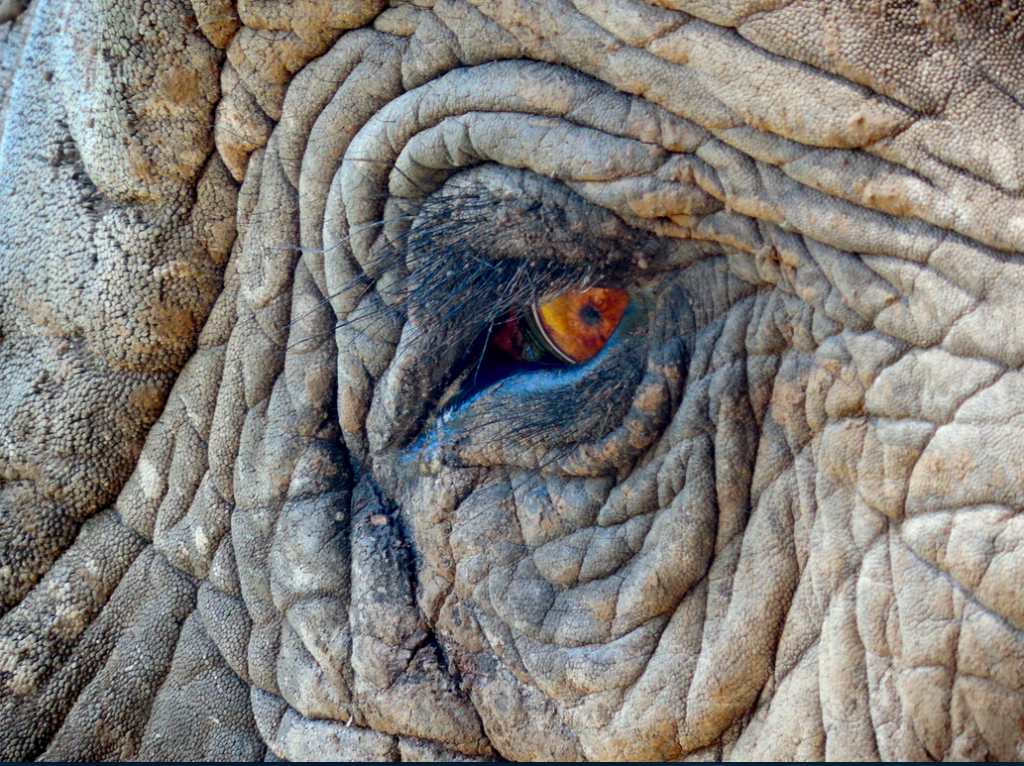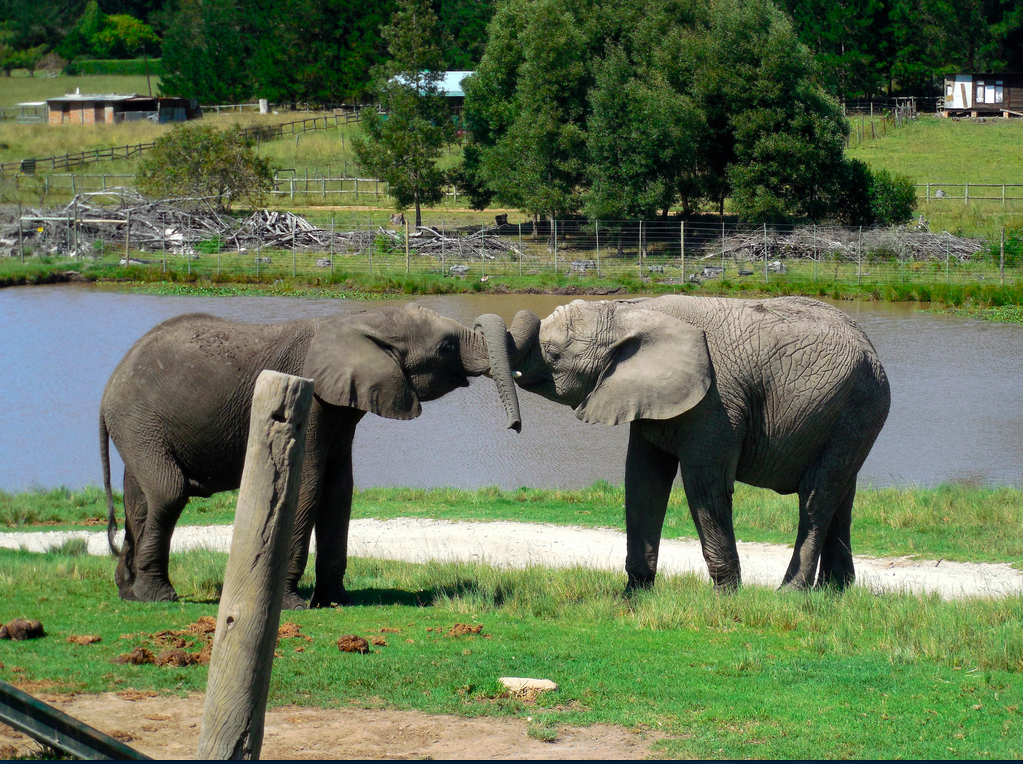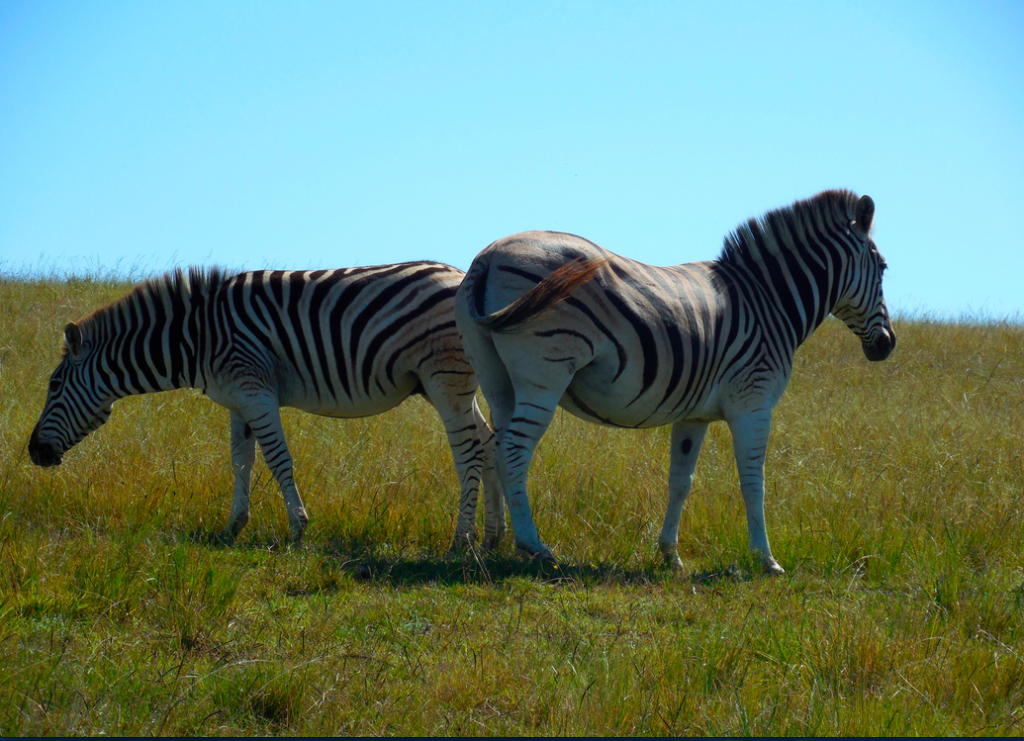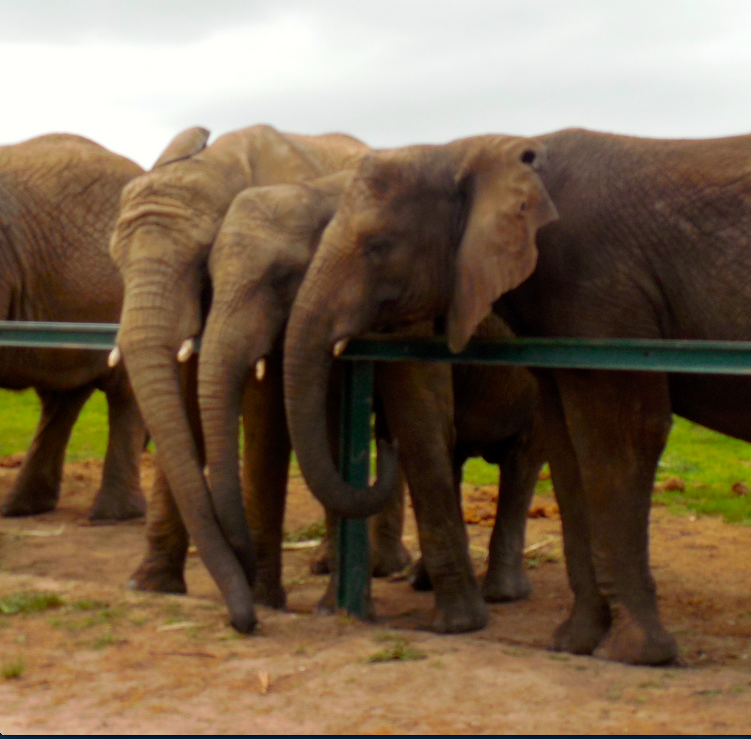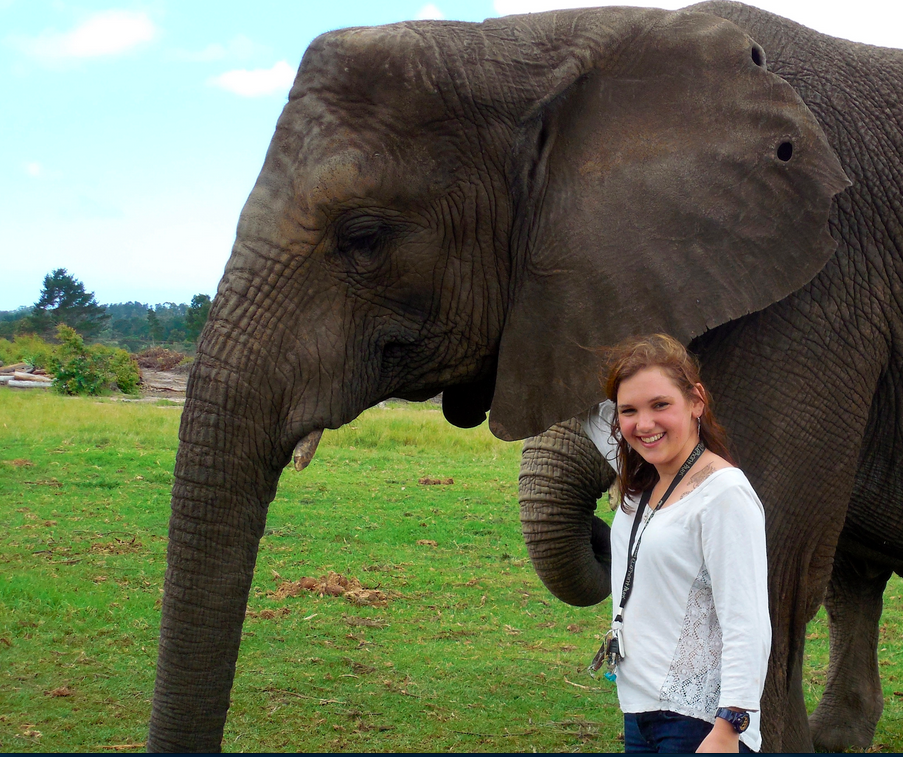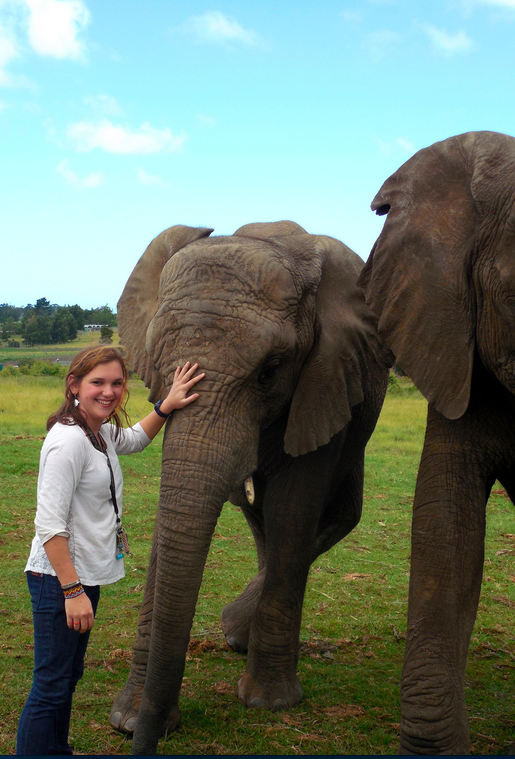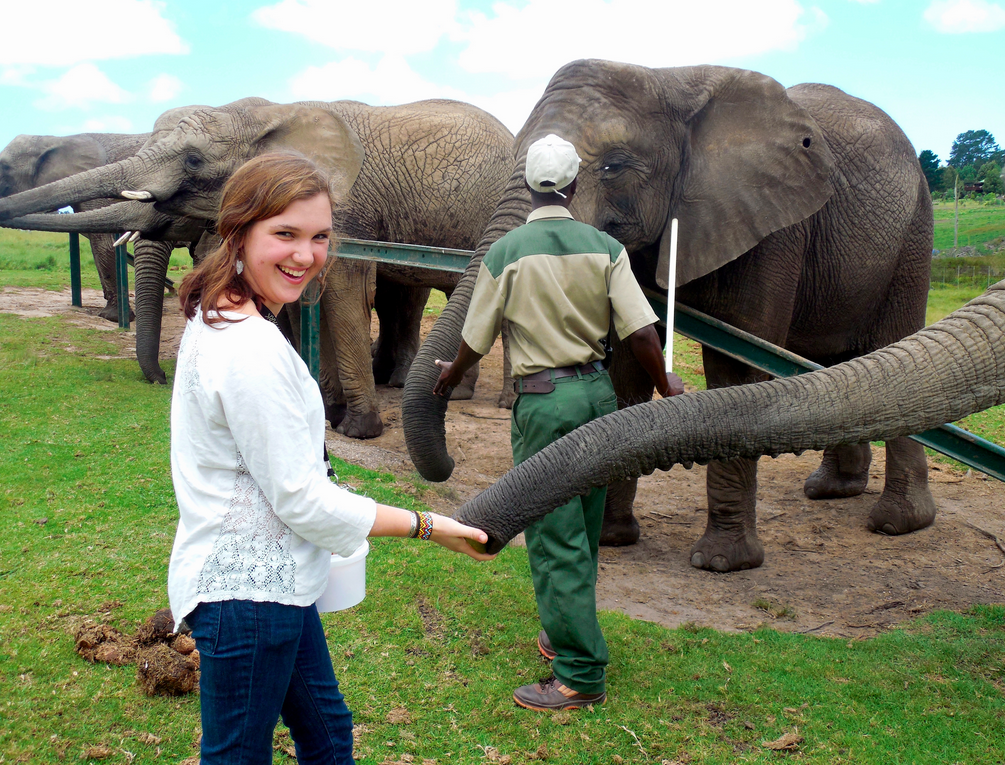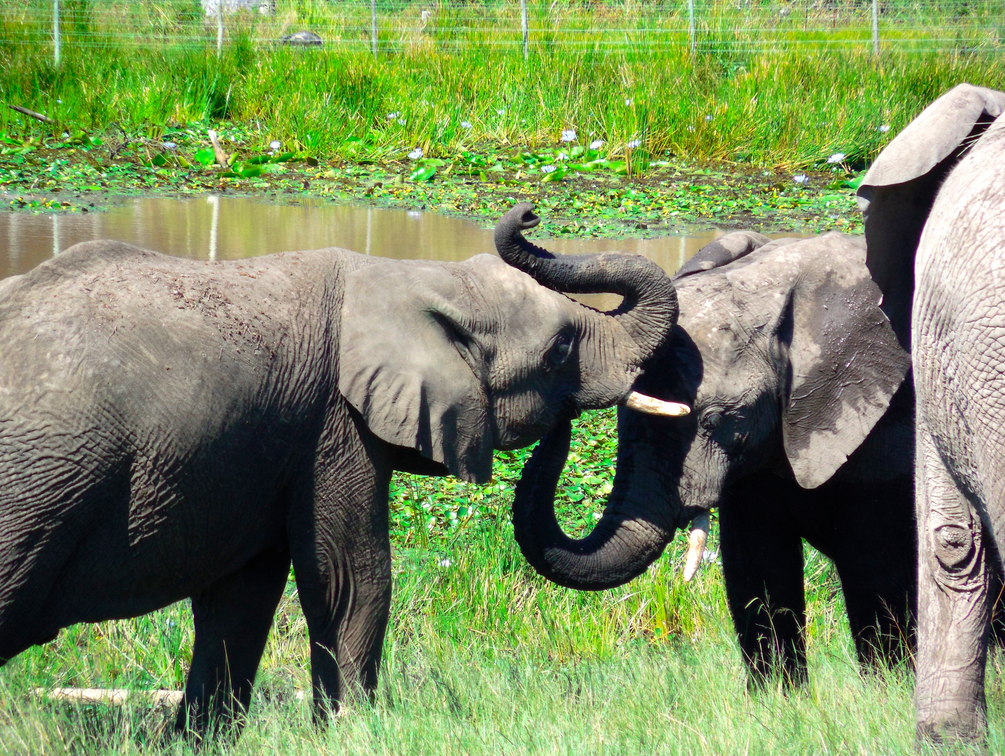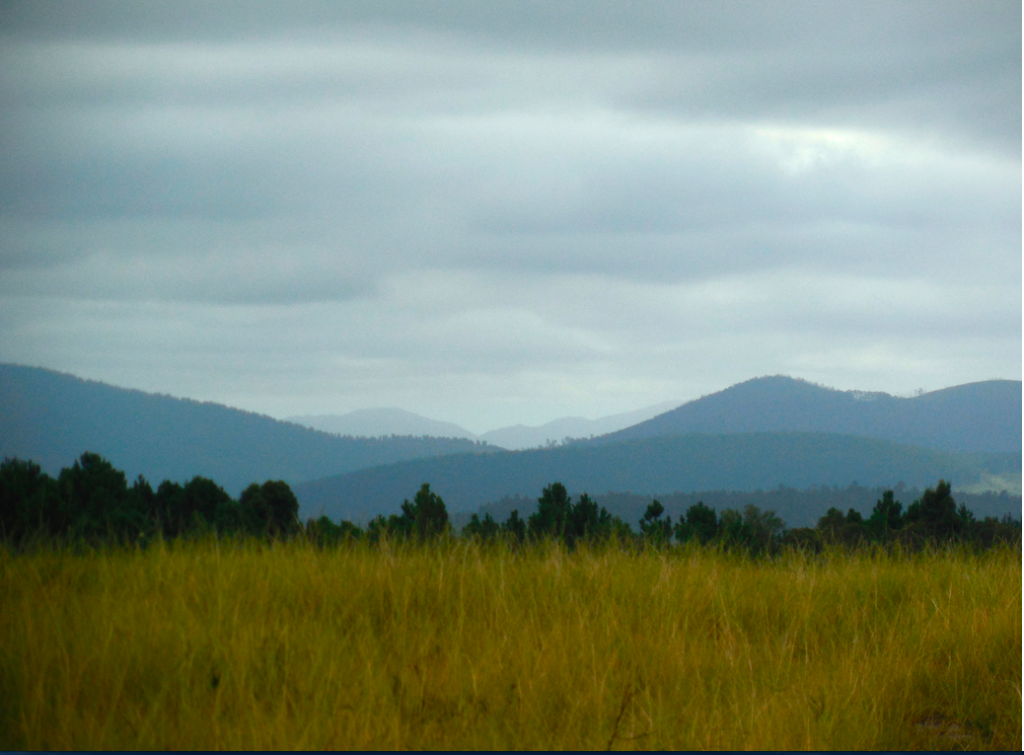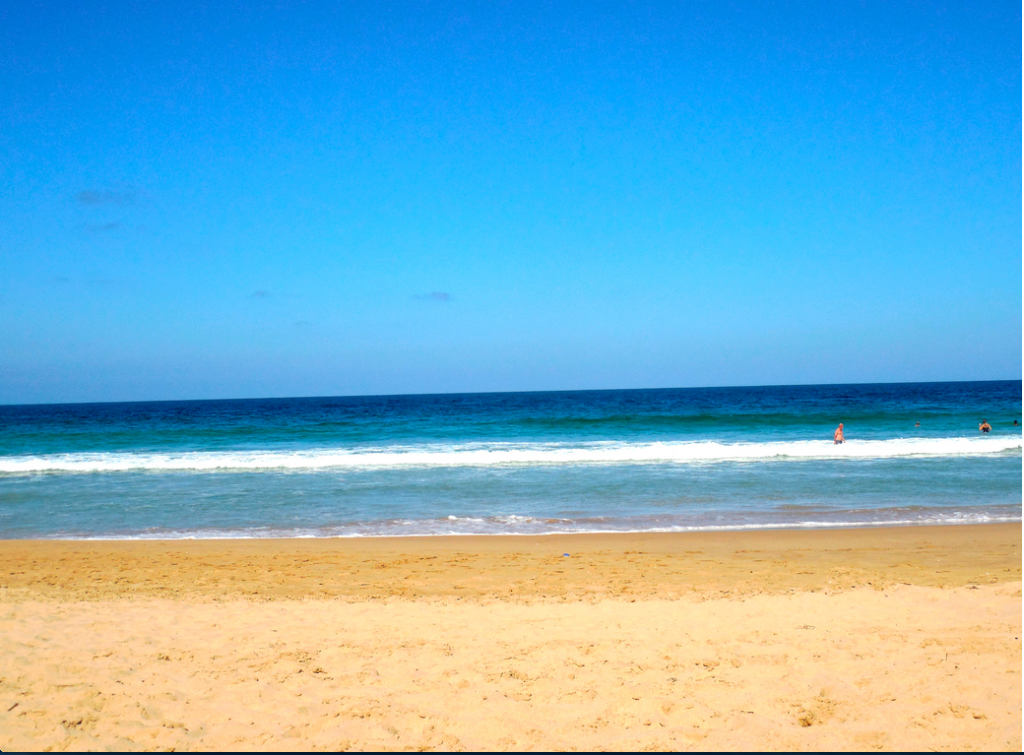One month has passed since arriving here in Plettenberg Bay, South Africa. I have been learning the ways of the African Elephant Research Unit here at the Knysna Elephant Park. It is absolutely beautiful here! As part of the research team, my job is mostly to monitor all the elephant's behaviours and interactions. Here, there are 18 captive elephants that are split into three herds. The main herd has 7 elephants, 5 females, 2 males. This is the herd that I am allowed to get close to and the one that I do the most observations on. There is also the bachelor herd that has 3 males in it and because they are so dangerous, we can't approach them at all. The last herd has three adults and a 5 youngsters. These individuals are also quite dangerous so we stay far away. The park started in 1994 and 45 elephants have come and gone or come and stayed in the last 21 years. Sally and Harry, the two original elephants are still here. The research unit started in 2009. Before AERU, there was very little data on captive elephants in South Africa. We also have 18 zebra!
A typical day begins at 6:15 when we have to clean up the food that the elephants ate over night. Then we have 5 2-hour shifts of various tasks. These can include monitoring what the main herd does every 5 minutes or which other elephants they like or dislike, doing the same tasks on the bachelor herd from a distance, entering data into the computer, taking pictures for the social media pages, or my personal fav, making dung paper. We work from Monday to Thursday and have a half day on Fridays and Saturday and Sunday off.
I am staying a total of 12 weeks but most of the other volunteers stay about a month. Some stay only two weeks. They mostly come from the UK although there has been a few from Germany, Canada, Australia, Holland, the US, and right here in South Africa. The ages vary but are mostly females.
So far, I love it. Because I am staying for a longer period of time, I get to be more involved in the project than other volunteers. I came here with little information on the actual placement and one of the biggest struggles that I've had while being here is dealing with tourism. The park is a lot more tourist oriented than I expected. Although I know that it raises awareness, it sometimes seems that the tourist part of the park comes before the research and in my mind, that is backwards. Even though I love it here and I am thrilled to be here, I would have liked it to be a non-tourist park because sometimes, it seems like a big zoo. The staff here treats the elephants very well so it I don't feel too bad for them because they are spoiled but I would have liked to see them in their natural habitat.
Two more months to go!! I can't wait to see what else I can get my hands into here! More to come!
Julia
